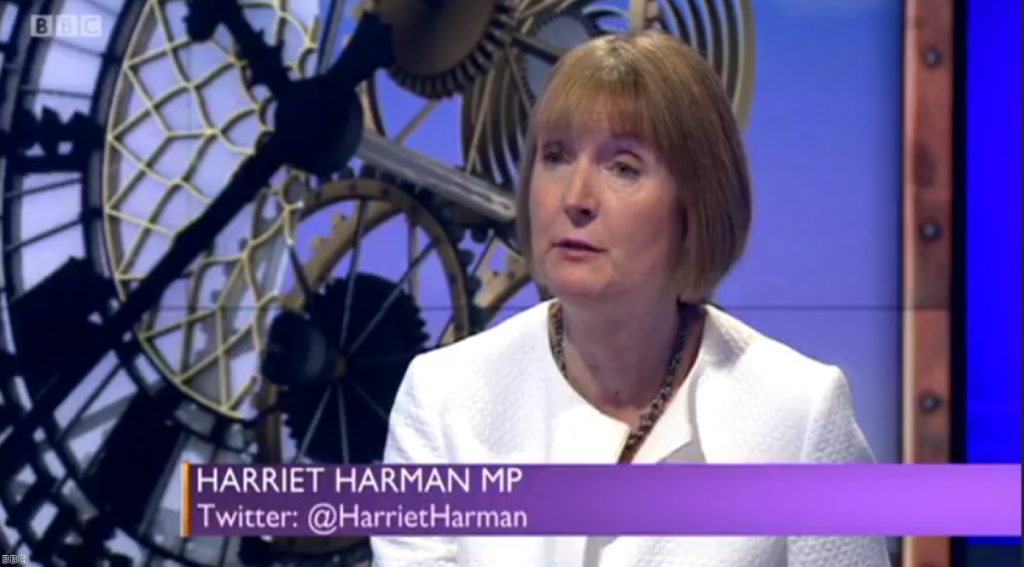Labour opposes child poverty but supports measures which will increase it
Andrew Neil had a hard time yesterday persuading Harriet Harman to oppose any of the harsh austerity measures in George Osborne's budget.
The Labour leader insisted she would support almost all of the new welfare cuts proposed by the chancellor.
"We won't oppose the welfare bill, we won't oppose the benefit cap, [we won't oppose] restricting benefits and tax credits to people with three or more children," she insisted.
She added that "people don't want us to do blanket opposition. They want us to be specific."


Pushed on what if any, specific measures Labour would oppose, Harman explained that they opposed some changes to tax credits as well as the "abolition of child poverty targets".
Now I'm sure that anti-poverty campaigners will welcome this. But the measures which Harman is supporting will actually increase child poverty.
As the government's own internal advice warned earlier this year, the benefit cap is set to force tens of thousands more children into poverty. Labour now support this cap.
And it's not just those out of work who will be hit by these measures now supported by Labour. The majority of people currently living in poverty in the UK have jobs. The bulk of Osborne's proposed cuts are to in-work benefits. Labour now support cutting these.
When shadow chancellor Chris Leslie said last week that the government's cuts amount to a "work penalty," he was right. However, it is a work penalty which his party now largely support.
Harman yesterday sold her support for Osborne's cuts on the basis that Labour need to restore their economic credibility.
"We have got to recognise why it was that the Tories are in government and not us. And it's not because people love the Tories particularly but because they didn't trust us on the economy and benefits and we have to listen to that and respond to that."
This seems like a basic mistake. What Harman fails to understand is that it was the banking crisis and subsequent recession which cost Labour their economic credibility, not their support for popular in-work benefits like tax credits.
Harman's comments drew criticism yesterday from those on the left of the party as well as several Labour leadership contenders. However, even some on the right seemed to balk at Harman's new position.
As arch-Blairite John McTernan said yesterday of Harman's comments: "Huge error. The voters were not telling Labour that they wanted more child poverty."
Yet in effect, this is exactly what Harman is telling voters. The cuts that Labour now support will increase child poverty. Harman may see that as a price worth paying for restoring Labour's credibility, but it is an extremely high price for a party founded in order to protect the poorest and most vulnerable.
Harman is right that Labour shouldn't oppose everything which Osborne is doing.
But if Labour can't even stand up against children being forced into poverty, then it's hard to see what, if anything, they will actually now oppose.









